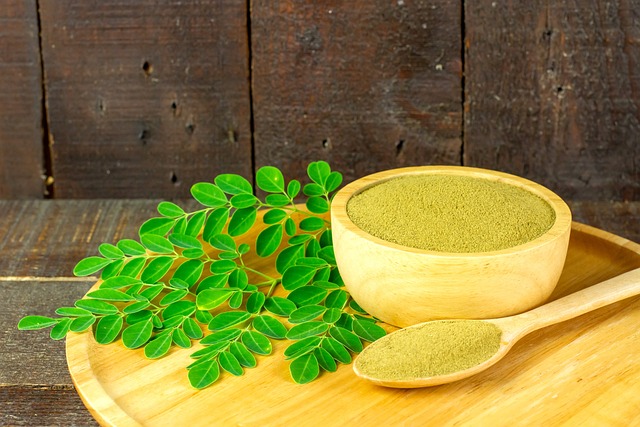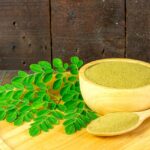مورنگا (Moringa) is a plant native to parts of Africa and Asia, and it has gained significant recognition for its exceptional nutritional value and medicinal properties. In Urdu, it is commonly known as مورنگا (Moringa), but in some areas, it may also be referred to as سہانجا (Sahjan) or مورنگا. Moringa is often called the “drumstick tree” due to the shape of its pods, or the “miracle tree” because of its numerous health benefits. This article delves into the details of moringa, its various uses, and its incredible health benefits, Moringa In Urdu Meaning, particularly in the context of Urdu-speaking communities.
Moringa: A Brief Introduction
Moringa is a fast-growing, drought-resistant tree that is typically found in tropical and subtropical regions. The scientific name of the plant is Moringa oleifera, and it is a member of the Moringaceae family. Almost every part of the Moringa tree is edible and highly nutritious. These include the leaves, seeds, pods, flowers, and roots. The leaves are the most commonly used part of the plant for medicinal and nutritional purposes.
In Urdu-speaking regions, particularly in Pakistan and India, moringa is used in a variety of traditional dishes and remedies. It has a long history of being utilized in Ayurvedic medicine due to its incredible health benefits.
Nutritional Value of Moringa
Moringa leaves are considered a powerhouse of nutrients. It is rich in vitamins, minerals, and antioxidants, making it one of the most nutritious plants in the world. Some of the key nutrients found in moringa include:
- Vitamins: Moringa is an excellent source of vitamins such as Vitamin A, Vitamin C, Vitamin E, and several B vitamins (B1, B2, B3, B6, Folate).
- Minerals: It contains a variety of minerals such as calcium, potassium, magnesium, iron, and phosphorus, which are essential for the body’s overall health.
- Proteins: Moringa is also rich in protein, containing all nine essential amino acids.
- Antioxidants: The leaves of moringa are packed with powerful antioxidants like quercetin, chlorogenic acid, and beta-carotene, which help protect the body from oxidative stress and free radical damage.
Due to its high nutritional content, moringa leaves are often used in powder form, and can be added to smoothies, soups, or consumed as a supplement, Moringa In Urdu Meaning.
Health Benefits of Moringa
Moringa has numerous health benefits, which is why it is commonly referred to as the “miracle tree.” Let’s explore some of the most notable health benefits of moringa:
A. Boosts Immune System
Moringa is packed with Vitamin C, which is essential for a healthy immune system. Regular consumption of moringa can help strengthen the body’s defenses against infections and illnesses. It also contains antioxidants that support immune function by neutralizing harmful free radicals in the body.
B. Improves Digestion
The leaves of moringa are known for their ability to improve digestion. Moringa contains fiber and several compounds that support digestive health, such as alkaloids and saponins. It helps reduce symptoms of constipation, bloating, and indigestion, promoting a healthy gut.
C. Controls Blood Sugar Levels
Studies have shown that moringa can be helpful for individuals with diabetes. The plant has properties that help regulate blood sugar levels by improving insulin sensitivity and reducing blood sugar spikes. This makes moringa a valuable addition to a diabetic diet.
D. Reduces Inflammation
Moringa has potent anti-inflammatory properties due to its high levels of antioxidants. Chronic inflammation is associated with many health conditions, such as arthritis and heart disease. Moringa helps to reduce inflammation in the body, potentially alleviating symptoms of inflammatory diseases.
E. Supports Heart Health
Moringa is known to help lower blood pressure and cholesterol levels, both of which are risk factors for heart disease. The potassium in moringa helps to regulate blood pressure, while its antioxidants prevent oxidative damage to the blood vessels. It is also beneficial for overall cardiovascular health.
F. Enhances Skin Health
The high levels of Vitamin C and Vitamin E in moringa help promote healthy, glowing skin. Moringa In Urdu Meaning Moringa oil, extracted from its seeds, is often used in skincare products due to its moisturizing and anti-aging properties. It helps combat skin damage, reduces wrinkles, and promotes collagen production.
G. Aids in Weight Loss
Moringa is often included in weight loss programs due to its ability to boost metabolism and reduce fat accumulation. The plant helps regulate blood sugar levels and reduces cravings, which can lead to a reduction in overall calorie intake.
Moringa Uses in Urdu Culture
In Urdu-speaking communities, moringa is widely used in both culinary and medicinal practices. The leaves, pods, and seeds are used in various forms such as fresh, dried, or powdered. Some common uses include:
- Moringa in Dishes: Moringa leaves are often cooked in traditional dishes like sahjan daal or sahjan ki bhaji. The leaves add a unique flavor and nutritional value to soups, curries, and stews. Moringa pods (known as drumsticks) are also a popular ingredient in many curries.
- Moringa Tea: Moringa leaves are often used to make herbal tea. The tea is consumed for its detoxifying properties and to improve overall health. In some regions, people also drink moringa tea for its calming and digestive benefits.
- Moringa Oil: The oil extracted from moringa seeds is used in skincare and haircare products. It is believed to help reduce skin wrinkles, promote hair growth, and moisturize the skin.
- Medicinal Uses: Moringa has been used in traditional medicine for centuries. In many households, moringa powder or fresh leaves are used to treat conditions like anemia, arthritis, and digestive issues. The plant’s antimicrobial properties also make it effective in treating infections.
How to Incorporate Moringa in Your Diet
In Urdu-speaking regions, moringa is relatively easy to incorporate into daily life. Some simple ways to include moringa in your diet include:
- Moringa Powder: Add moringa powder to smoothies, shakes, or yogurt for a nutritional boost.
- Cooked Moringa Leaves: Use moringa leaves in soups, stews, or stir-fries.
- Moringa Tea: Brew dried moringa leaves into a tea for a refreshing and healthy drink.
- Moringa Oil: Use moringa oil as a cooking oil or as a natural moisturizer for your skin.
Conclusion
Moringa is a versatile plant with a wealth of health benefits. From its rich nutritional profile to its therapeutic properties, it is no wonder that it has been dubbed the “miracle tree.” In Urdu-speaking communities, moringa has been a part of traditional medicine and cuisine for centuries. Whether used for boosting the immune system, improving digestion, or enhancing skin health, moringa’s numerous advantages make it an invaluable addition to any healthy lifestyle. Moringa In Urdu Meaning, So, the next time you come across مورنگا or سہانجا, remember that you are looking at one of nature’s most potent superfoods!







